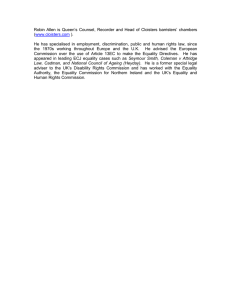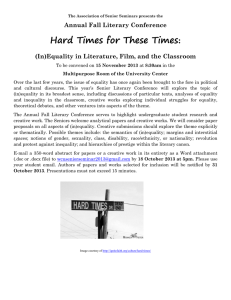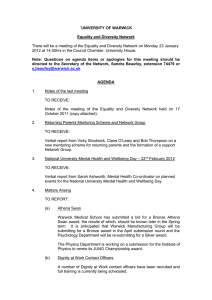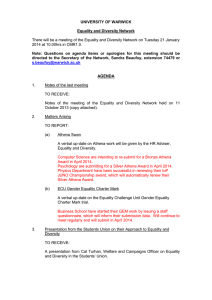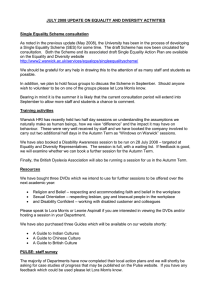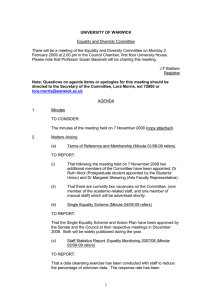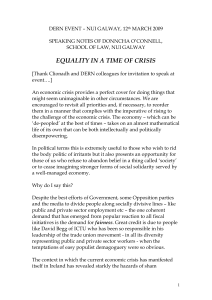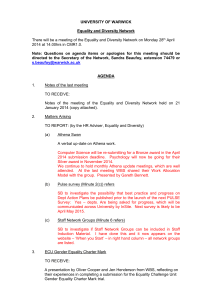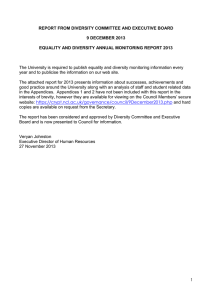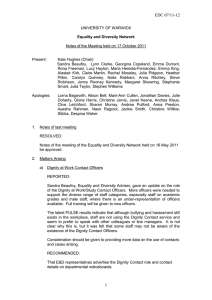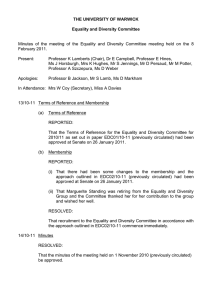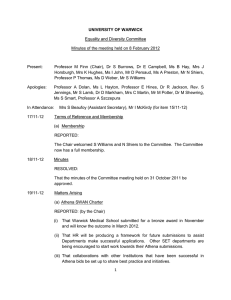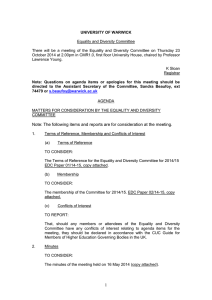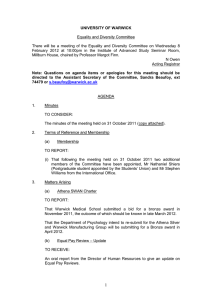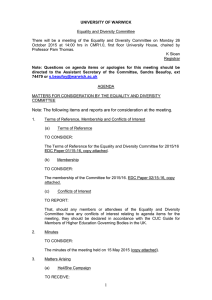EQUALITY OBJECTIVES 2012 The following objectives were agreed in March 2012. They are the result of engagement activities, both internal and external to the Trust and EDS grading activities. These
advertisement
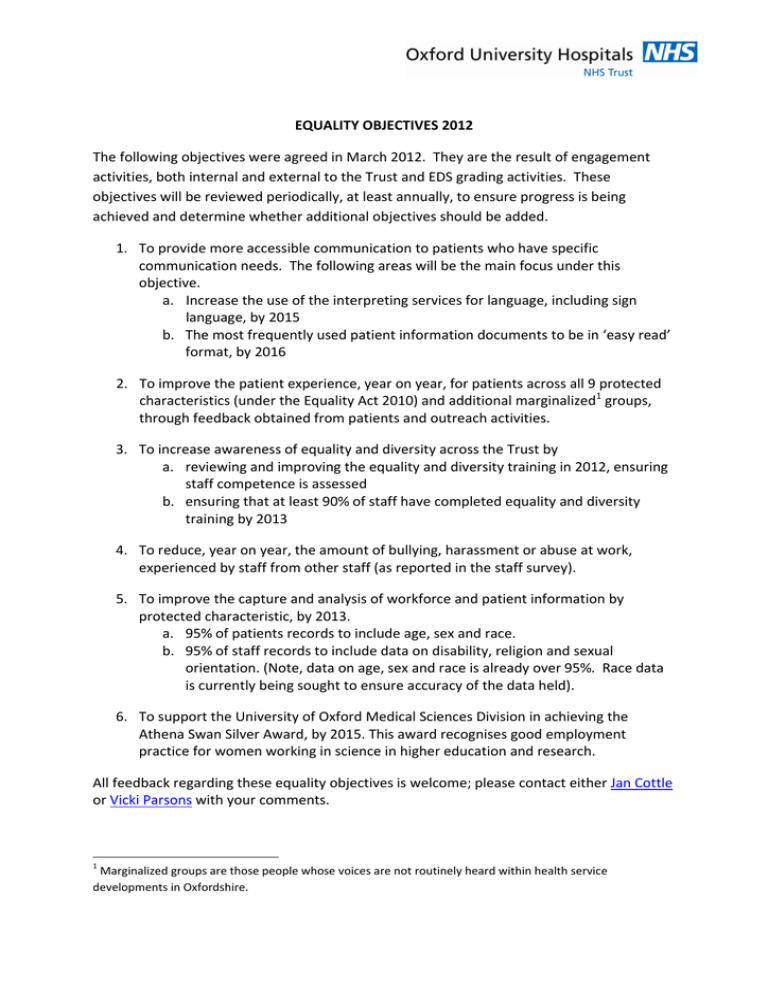
EQUALITY OBJECTIVES 2012 The following objectives were agreed in March 2012. They are the result of engagement activities, both internal and external to the Trust and EDS grading activities. These objectives will be reviewed periodically, at least annually, to ensure progress is being achieved and determine whether additional objectives should be added. 1. To provide more accessible communication to patients who have specific communication needs. The following areas will be the main focus under this objective. a. Increase the use of the interpreting services for language, including sign language, by 2015 b. The most frequently used patient information documents to be in ‘easy read’ format, by 2016 2. To improve the patient experience, year on year, for patients across all 9 protected characteristics (under the Equality Act 2010) and additional marginalized1 groups, through feedback obtained from patients and outreach activities. 3. To increase awareness of equality and diversity across the Trust by a. reviewing and improving the equality and diversity training in 2012, ensuring staff competence is assessed b. ensuring that at least 90% of staff have completed equality and diversity training by 2013 4. To reduce, year on year, the amount of bullying, harassment or abuse at work, experienced by staff from other staff (as reported in the staff survey). 5. To improve the capture and analysis of workforce and patient information by protected characteristic, by 2013. a. 95% of patients records to include age, sex and race. b. 95% of staff records to include data on disability, religion and sexual orientation. (Note, data on age, sex and race is already over 95%. Race data is currently being sought to ensure accuracy of the data held). 6. To support the University of Oxford Medical Sciences Division in achieving the Athena Swan Silver Award, by 2015. This award recognises good employment practice for women working in science in higher education and research. All feedback regarding these equality objectives is welcome; please contact either Jan Cottle or Vicki Parsons with your comments. 1 Marginalized groups are those people whose voices are not routinely heard within health service developments in Oxfordshire.




